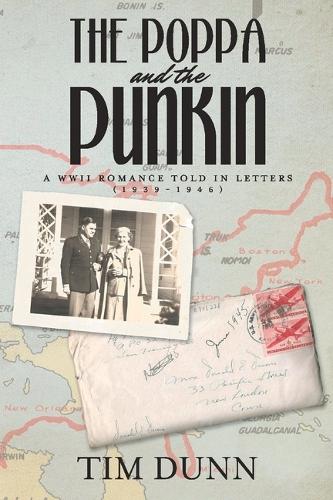
The Poppa and The Punkin: A WWII Romance Told in Letters (1939-1946)
(Paperback)
Publishing Details
The Poppa and The Punkin: A WWII Romance Told in Letters (1939-1946)
By (Author) Tim Dunn
BookBaby
BookBaby
30th November 2020
United States
Classifications
General
Non Fiction
Modern warfare
Physical Properties
Paperback
206
Width 152mm, Height 228mm, Spine 12mm
331g
Description
The Poppa and The Punkin: A World War II Romance Told in Letters 1939-1946, is the story of a young couple who send 600-700 letters to each other during the war when they are separated. One of their moms also writes her son and the wife also writes to her baby brother. They share the collective feelings of the family throughout the war whether they are on the Pacific front, the European front or on the Homefront. The couple's son who has discovered this trove of letters has developed an accounting of WWII by weaving these letters, their differing reactions to the major events of WWII and how they cope with their loneliness, sadness, and fears and aspirations for the future after the war. The couple argues, feel hurt, differ over life's future decisions and disagree over such major events as the atomic bomb, the United Nations and even the very nature of war. The husband worries about his health, the opinion of his men and the utter waste of the army's resources and function when the war end. His wife is lonely but is more agitated by the loss of life on both sides, the unemployment that will follow the war and the families of men who will not come back. But what is most true about the letters is in the couple's separation, utter joy and delight upon receiving a letter from the other, that carries them through the weeks of loneliness.
Author Bio
Tim is a retired educator, living with his husband, John in their restored 1856 Farmhouse in Provincetown, MA. Tim went to Duke University where he studied under Dr. Anne Scott, a well-known ante-bellum period historian whose work focussed on the central role of women in plantation life. He transferred to Haverford College in PA where he studied under the reknowned African-American historian, Herbert Aptheker in his first year teaching after being thrown out of Columbia U for his political views in the 30's. On to Harvard University for graduate work in the History of American Education where he studied under Sara Lawrence-Lightfoot and others.
Having developed experiential social studies curriculum at alternative high schools in Philadelphia and at Wilmington DE Friends Elementary School during his first decade in education, he went on to be the MA Associate Commissioner of Education's assistant where he handled many controversial issues: students with HIV admission to public schools, introduction of LGBTQ issues and the direction of a federal training center on these and other non-academic issues. He spent much of the rest of his career working with the federal government as a contractor in developing research-based social and emotional curricula and school counseling and psych services at the district, state and federal level publishing many books and articles and directing two teacher training centers on these topics.
His avocation during this 30 year career, was to focus on a variety of historical projects: Spent time working as a docent and archaeological staffer at Plimoth Plantation, restored their 1856 Farmhouse home on Cape Cod, and created a geneaological study of his mother's family. -(Czyka) on site in Poland. and a similar study of his father's Irish (Dunn) roots in Dublin (18th century) and English roots (Fones) in Devonshire (16th century). His first book was a pictorial and written summary of this research using family records, photographs and antiques published by Shutterfly.
